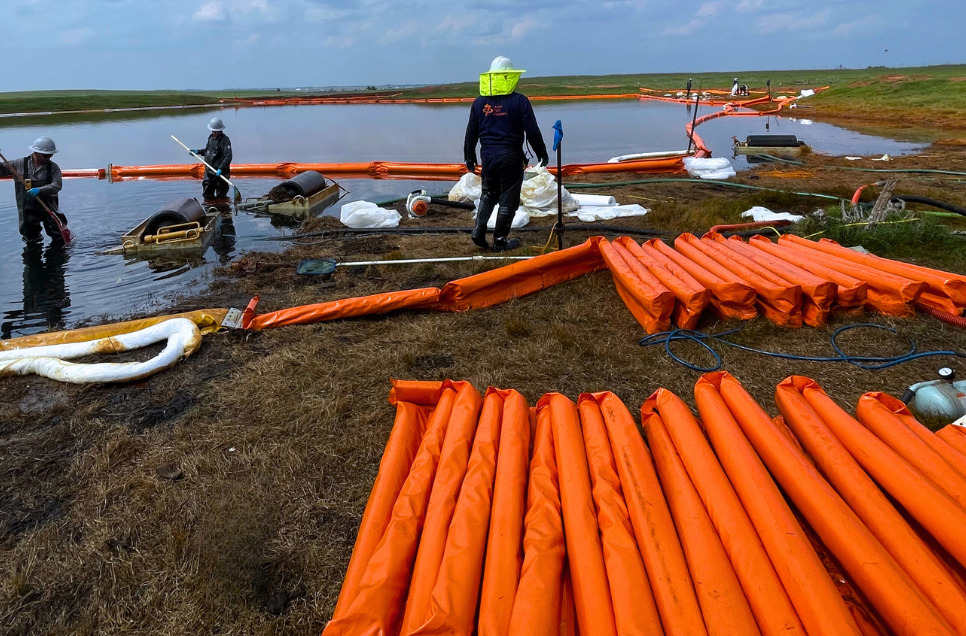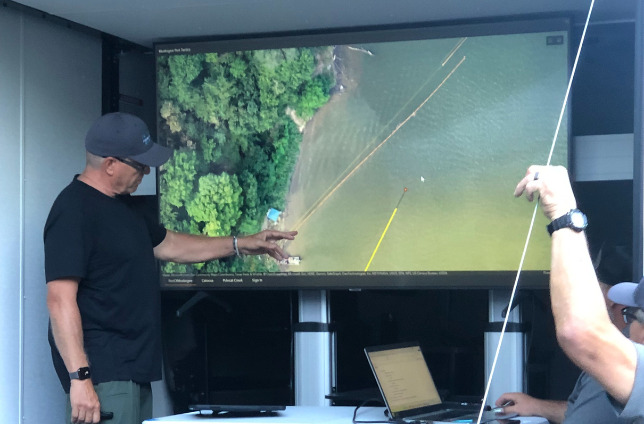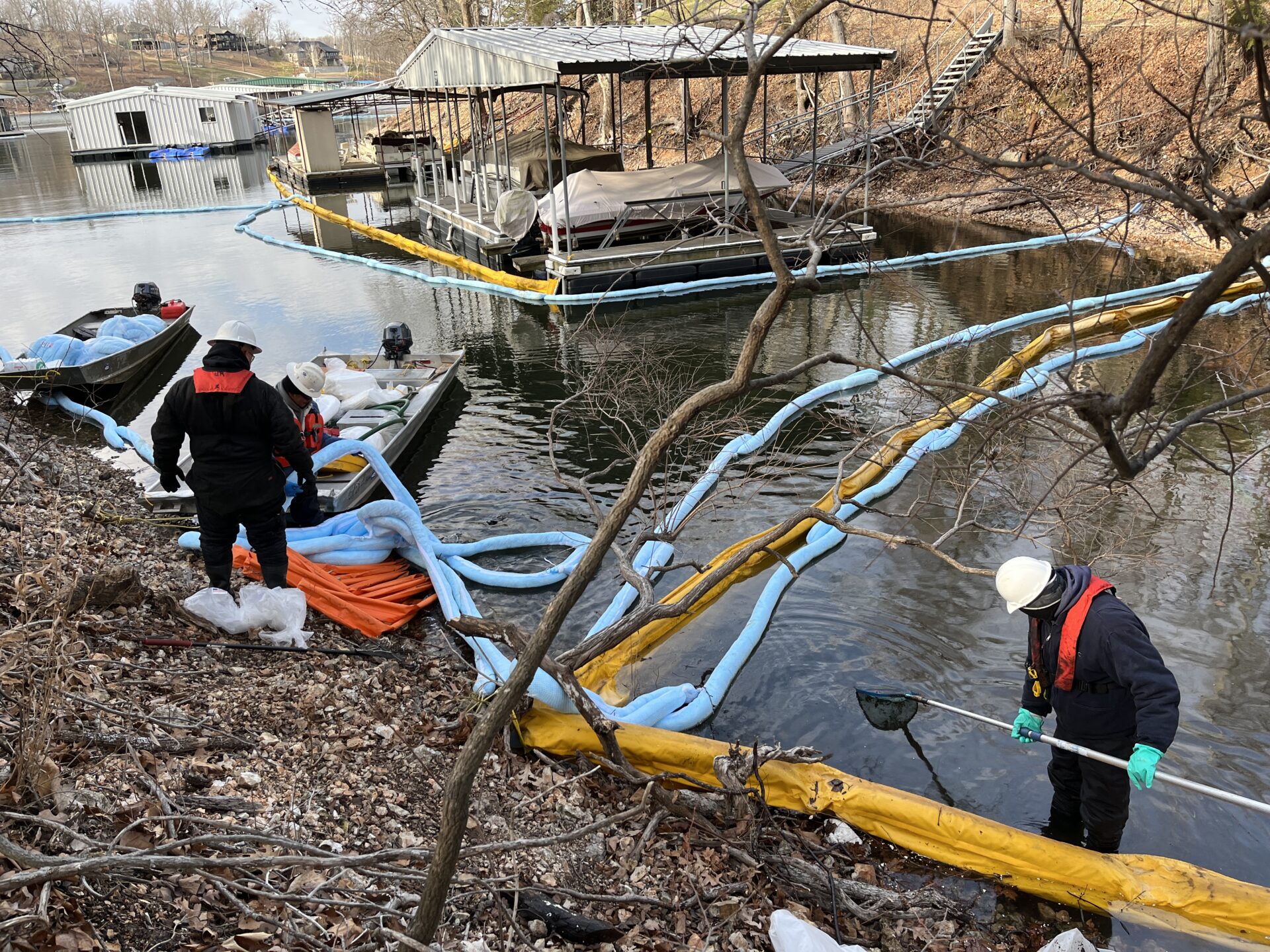What is an OSRO and Why are They Important?

ACME Environmental’s trained spill technicians using our containment boom and skimmers to clean up an oil spill caused by a broken pipeline that ran underground below a pond.
Oil spills are environmental disasters that can have devastating consequences on marine ecosystems and coastal communities. In response to these potential emergencies, the United States Coast Guard (USCG) developed the Oil Spill Removal Organization Program (OSRO). This innovative initiative aims to enhance the preparedness and response capabilities of the oil spill response industry, and also ensures a more effective and coordinated approach to handling oil spills. In this article, we will provide an in-depth overview of the OSRO program and explore its significance for the oil spill response industry.
The OSRO program prioritizes public and environmental safety above all else. By certifying competent and well-equipped response organizations, the USCG enhances the nation’s readiness to protect sensitive ecosystems and coastal communities from the effects of oil spills. The program’s proactive approach to preparedness and response helps minimize the long-term environmental, economic, and social impacts of oil spills, safeguarding both natural resources and human livelihoods.
When and Why was the OSRO Program Created?
The Oil Spill Removal Organization Program (OSRO) is a fundamental component of the USCG’s National Contingency Plan (NCP). Enacted under the authority of the Oil Pollution Act of 1990 (OPA 90), this program was designed to strengthen the nation’s ability to respond swiftly and effectively to oil spills in U.S. waters. OPA 90 amended the Clean water Act and was a collaborative effort involving federal, state, and local agencies, as well as private entities. This Act and its contents were largely implemented because of the Exxon Valdez Oil Spill of 1989, which was responsible for the release of over 11,000,000 gallons of crude oil into Alaskan waterways. These different sectors are routinely working together to safeguard the environment and mitigate the impacts of oil spills.
What Role Do OSROs Play in Our Industry?
Certified OSRO companies serve as a crucial link between the government and private industry when it comes to spill response. The program identifies and certifies private organizations and contractors that possess the necessary expertise, equipment, and resources to respond to oil spills effectively. Companies with an OSRO certification are strategically located around the country, ensuring a rapid response capability wherever an oil spill might occur.
Certification and Advantages
To receive an OSRO certification, response organizations must undergo a rigorous evaluation by the USCG. The certification process assesses various factors, such as response equipment, personnel training, response planning, and financial capability. Companies that meet the requirements of the OSRO program earn their certification and enhance their reputation and credibility within industry.
One of the most significant advantages of receiving an OSRO certification the ability to mobilize and deploy resources quickly in the event of an oil spill. These organizations maintain a wide range of specialized equipment, such as oil containment booms, skimmers, dispersants, and sorbents, to effectively contain, control, and remove spilled oil. By having pre-positioned assets and response plans in place, OSROs can significantly reduce response time and limit the spread of oil, minimizing the overall environmental impact.
Companies with an OSRO certification play a pivotal role in promoting collaboration and coordination among various parties involved in oil spill response. In the event of a spill, these organizations work closely with federal and state agencies, local authorities, and other industry players to execute a unified response strategy. This streamlined coordination ensures that resources are utilized and avoids duplication of efforts, thereby maximizing the effectiveness of the response.
Technological Advancements Due to the Program

John Bradley, CEO of Rapid Response Systems (RRS) using drone footage from a boom deployment exercise to teach proper deployment techniques at the Semi-Annual Boom School hosted by ACME and RRS
The OSRO program has also spurred advancements in oil spill response technology and innovation. To maintain their certification, response organizations must stay up-to-date with the latest industry practices. They also invest in research and development, and adopt cutting-edge technologies. As a result, the program encourages the spill response industry to evolve and improve its techniques and equipment. This ensures a more efficient response to future spills.
ACME Environmental: OSRO #0010
ACME Environmental was the tenth company to join the OSRO program and has also held the certification #0010 since then. Now, there are over 800 current Certified OSROs in the United States. Learn how ACME Environmental can help you stay prepared for emergencies. Give us a call or submit a form request online to talk to us about being your OSRO!

ACME Spill Technicians using containment boom, sorbent boom, and sorbent pads to contain and clean a diesel oil spill at a cove near a dock
Learn More About ACME Environmental’s 24/7 Emergency Oil Spill Response Services
Oil Spill Response
Additional Oil Spill Response Resources
Resources
Like What You Learned? Check Out One of Our Other Highlighted Articles Below, Or Visit Our Insights Section for More!
What Causes Oil Spills?
How Oil Spills Affect Wildlife
Oil Spill Prevention and Preparedness for Companies


